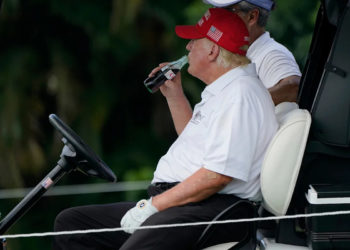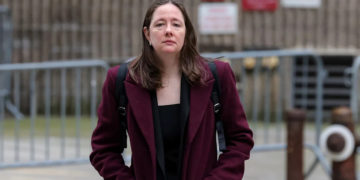Trump’s Brazil tariffs ultimatum backfires on Bolsonaro
Silvana Marques was one of thousands of Brazilians who flocked to São Paulo’s most famous art museum one afternoon last...
New U.S. assessment finds American strikes destroyed only one of three Iranian nuclear sites
WASHINGTON — One of the three nuclear enrichment sites in Iran struck by the United States last month was mostly...
Senate approves cuts to public broadcasting, foreign aid
WASHINGTON − Republicans in Congress are one step closer to officially trimming $9 billion in federal funds from public broadcasting,...
Tomorrowland music festival main stage ‘severely damaged’ by massive fire
Ticketholders for the 2025 Tomorrowland music festival can breathe a sigh of relief. Not only was no one harmed in...
Trump, Patel, Bongino and Bondi on the Epstein scandal
PHOENIX (AP) — When Jeffrey Epstein died in prison, then-President Donald Trump speculated that authorities might be wrong in ruling...
US aid workers lobbied for weeks to save food stocks from destruction after Trump cuts
By Ammu Kannampilly, Jonathan Landay and Jessica Donati(Reuters) -With 1,100 metric tons of emergency food rations nearing expiry in a...
Trump brokers deal for Coca-Cola to use ‘REAL Cane Sugar’ in U.S. Coke products
Coca-Cola will soon return to using real cane sugar in its U.S. products after decades of relying on high fructose...
Handwritten notes help lead search crews to mom and son stranded in remote forest
A mother and her 9-year-old son, who got stranded in a remote forest overnight on their way to a Boy...
‘I Gave One of the Best Performances of My Life’
NEED TO KNOWAnna Camp expressed her frustrations with not scoring a 2025 Emmy nominationThe nominations for this year's awards ceremony...
Researchers try new ways of preserving more hearts for transplants
WASHINGTON (AP) — Two university hospitals are pioneering new ways to expand lifesaving heart transplants for adults and babies —...















